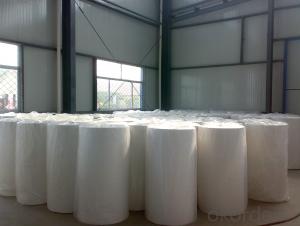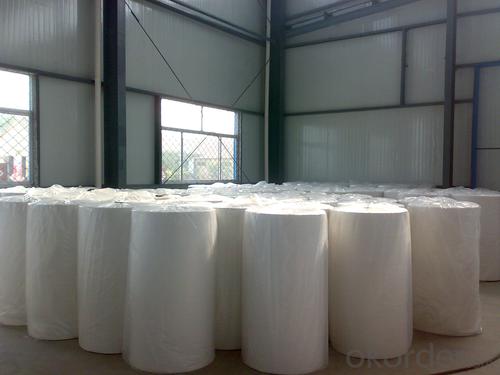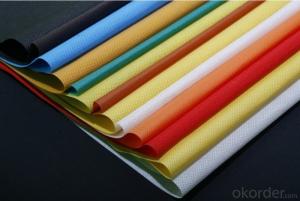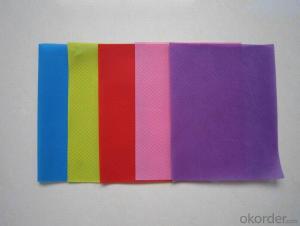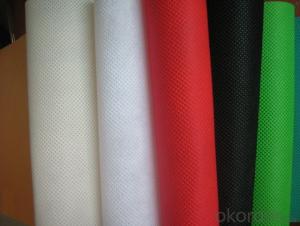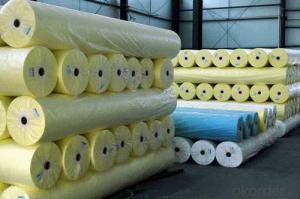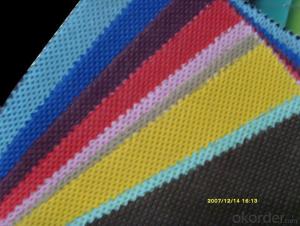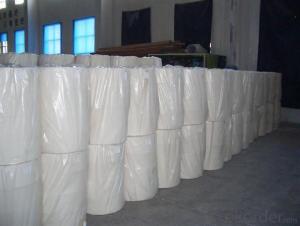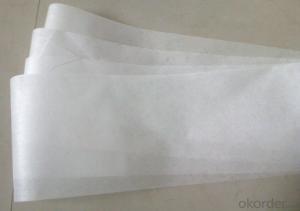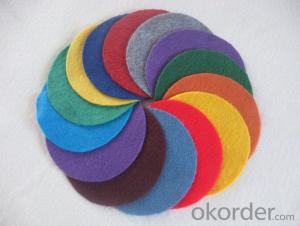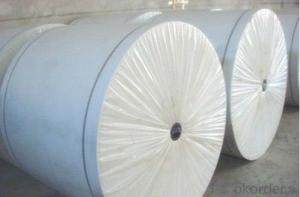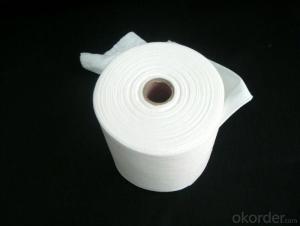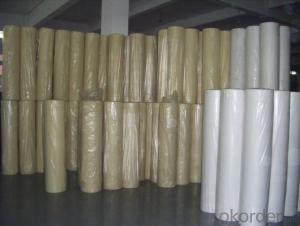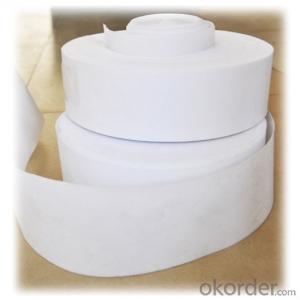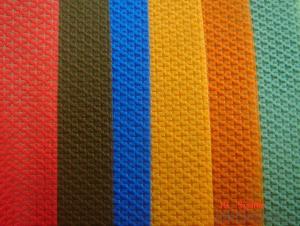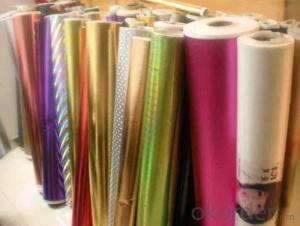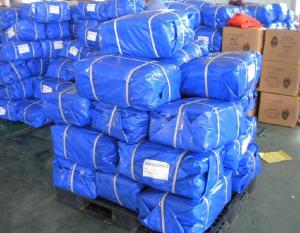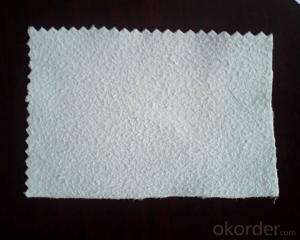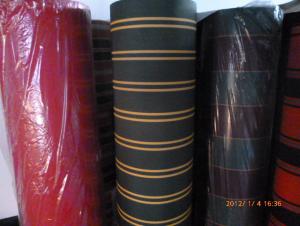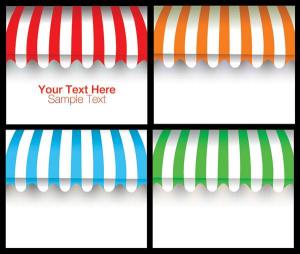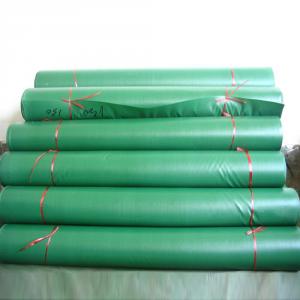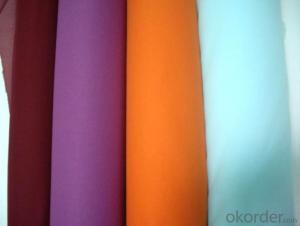polyester non woven fabric,breathable nonwoven fabric, hydrophobic nonwoven fabric
- Loading Port:
- Shanghai
- Payment Terms:
- TT OR LC
- Min Order Qty:
- 1000 roll
- Supply Capability:
- 10000 roll/month
OKorder Service Pledge
OKorder Financial Service
You Might Also Like
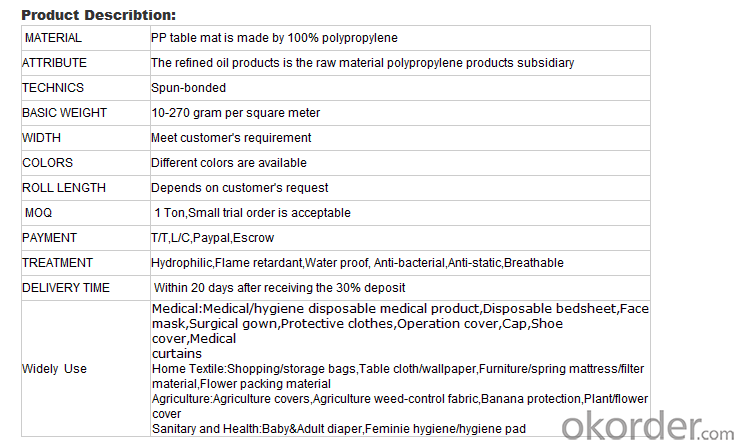
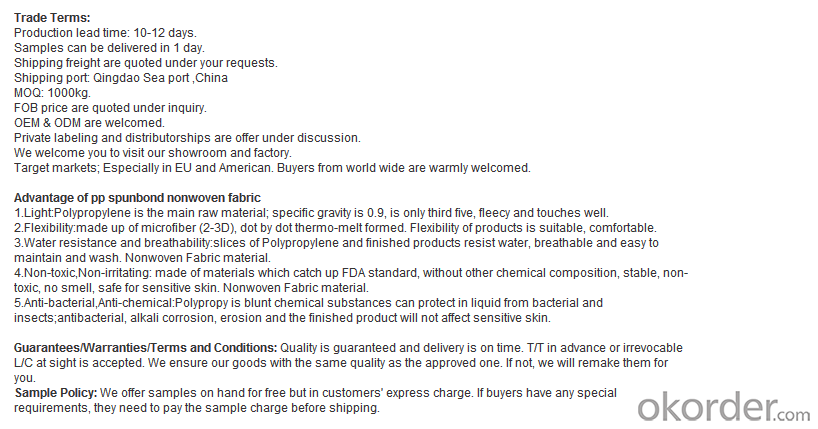
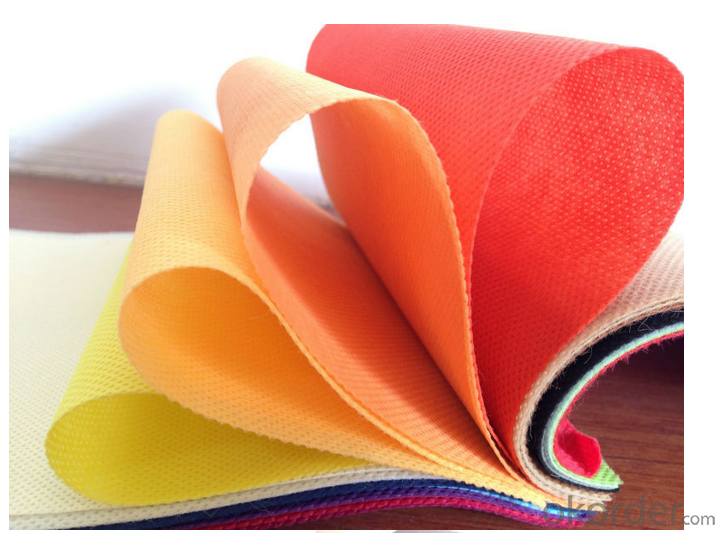
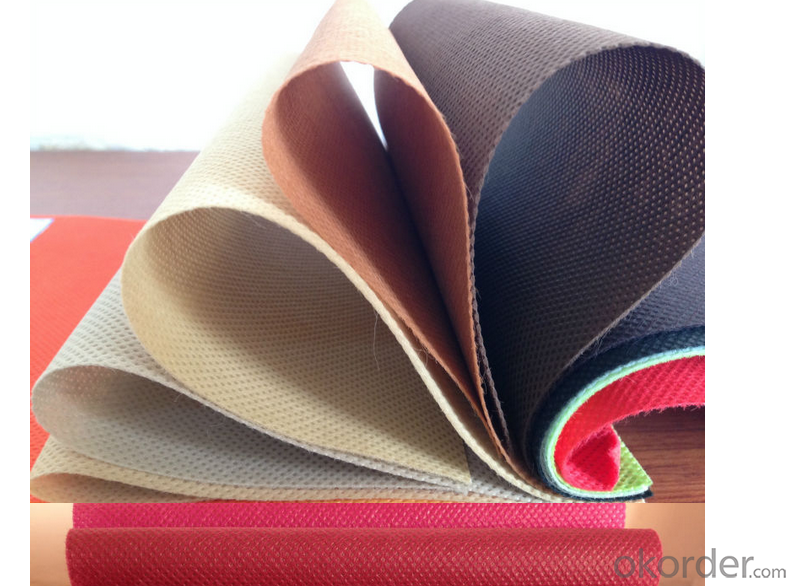
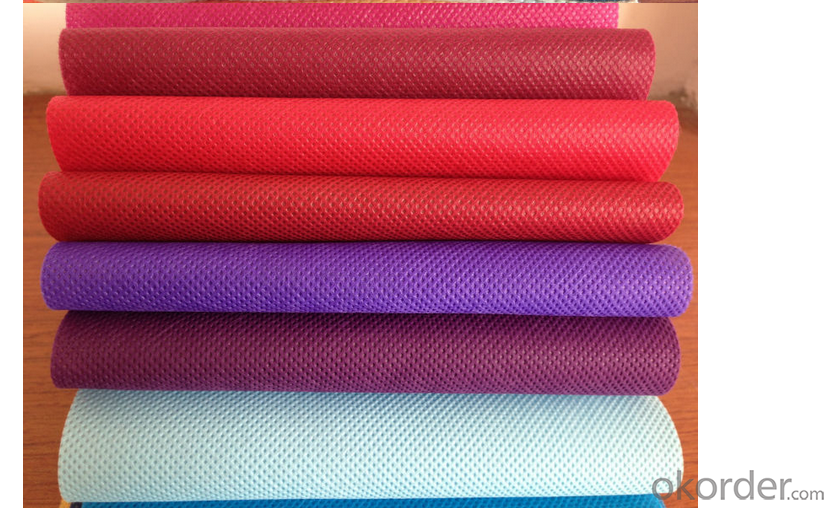
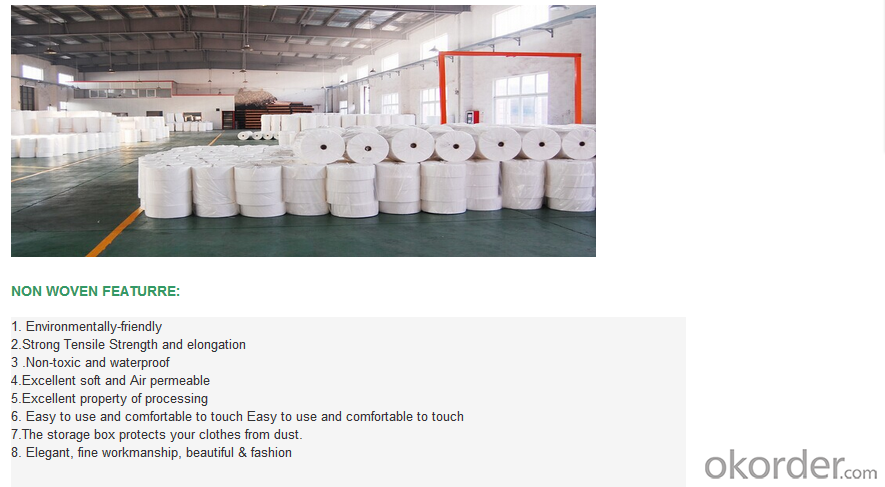
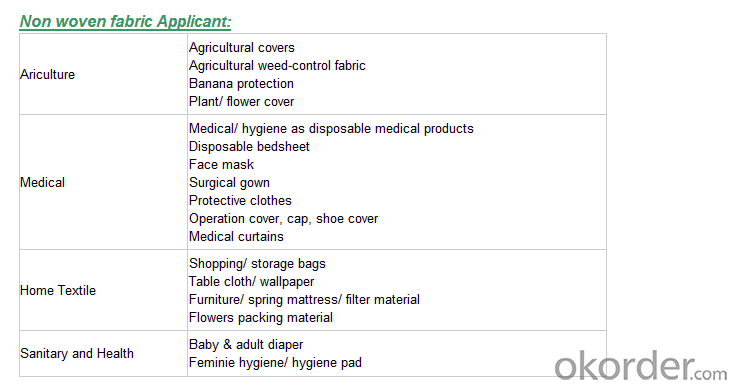
We are recognized as a reliable Manufacturer, Exporter and Supplier of Non Woven Fabric. We can provide Non Woven Fabric in any gram/m2 and any colour required by customer. Non Woven Fabrics are broadly defined as sheet or web structures bonded together by entangling fiber or filaments (and by perforating films) mechanically, thermally or chemically. PP Spun bonded Non woven Fabrics are produced using a precise extrusion-based technology. The polymer is stretched into a continuous filament and loosely spread onto a conveyor belt to form the web. Air is used to form and lay the fabric filaments. On the other hand, some non woven fabrics can be recycled after use, given the proper treatment and facilities.
Product Specifications
Weight: 10 - 150 gsm
Width: Max 1600 mm (can be slit)
Fabric Roll Length: As per buyer’s need ( 200 - 1200 Mtr)
Color: various colors available.
Procedure of production: Spun bonded Non Woven, Diamond design
Material: polypropylene
Minimum Order: 1000 Kg
Sample: sample free, freight collect
Product Application
Non woven fabric manufacturers usually manufacture the fabric in a roll form. It is then sent to various other industries where it has end applications, where is it cut and given different form depending upon the use. They can also be used in combination with different materials and offer a wide range of products.
Colored Non woven fabrics are use in many sectors and variety of applications, such as Health, Hygiene, Medical, Packaging, Agriculture, Furniture Upholstery, Geo Textiles, Leather Industry, Shoes and Garments. Customers come from the textile and automotive industries as well as many other sectors.
- Q: Lin is what kind of textile
- 3, textile fiber classification: natural fiber and chemical fiber. ① natural fibers, including plant fiber, animal fiber and mineral fiber. A plant fiber such as: cotton, hemp, fruit fiber. B animal fibers such as: wool, hair free, silk
- Q: The development of wool in Australia is not developed.
- Australia is a more mature market economy countries, dependence on international trade. In fiscal 2002, Australia's total foreign trade amounted to 240.393 billion Australian dollars, accounting for 34.5% of GDP, trade surplus of 1.495 billion Australian dollars, accounting for 1.2% of total imports,
- Q: Antistatic fabrics of textile electrostatic materials
- Static electricity is serious, the static voltage up to several thousand volts, due to discharge sparks, causing a fire, causing serious consequences.
- Q: Processing of textiles, processed products were detected formaldehyde exceeded, how to deal with
- Formaldehyde is volatile, soluble in water substances; according to this feature, so formaldehyde after washing or ventilation will disappear
- Q: China textile products do not how points? What kind of?
- Industrial chain long, professional market developed. Jiangsu, Zhejiang and Shanghai region has formed from the textile raw materials, fabric weaving to dyeing and finishing, clothing production longer textile industry chain, the upper and middle and downstream products rich and varied. The textile industry has a high degree of marketization and professional market network.
- Q: tera textile processing where to learn
- Dismissal hero is click on the role of small yellow box in the lower right corner of the barrel symbol can give up this role friends. Do not know if you have not seen this hand is not too cold
- Q: Do you need to do environmental protection for dry textile processing?
- Individual industrial and commercial business license is only one, but the composition is divided into two types of family management and personal business
- Q: Analysis of import and export of textile
- The growth rate fell 6.2 percentage points. Textile and apparel exports totaled $ 292.1 billion in 2013, an increase of 37.8% from 2010, an average annual growth rate of 11.3%, down 3.8 percentage points from the previous year's 15.1% average annual growth rate.
- Q: The meaning of the following terms in the textile industry: fabric, processing number, genuine number.
- If the same is the cotton fabric gauze than pure cotton shrinkage rate. Shrinkage of pure cotton <pure linen <silk. The ratio is about 5%: 8%: 12%.
- Q: What are the products produced by the textile mill?
- From the processing of the process, said: basically the fiber - yarn - line - cloth. Yarn is divided into weaving yarn, knitting yarn. Chemical fiber yarn is sprayed with spinneret. Cloth is divided into woven fabrics, knitted fabrics, finished dyeing and finishing yarn weaving and so on.
Send your message to us
polyester non woven fabric,breathable nonwoven fabric, hydrophobic nonwoven fabric
- Loading Port:
- Shanghai
- Payment Terms:
- TT OR LC
- Min Order Qty:
- 1000 roll
- Supply Capability:
- 10000 roll/month
OKorder Service Pledge
OKorder Financial Service
Similar products
Hot products
Hot Searches
Related keywords
